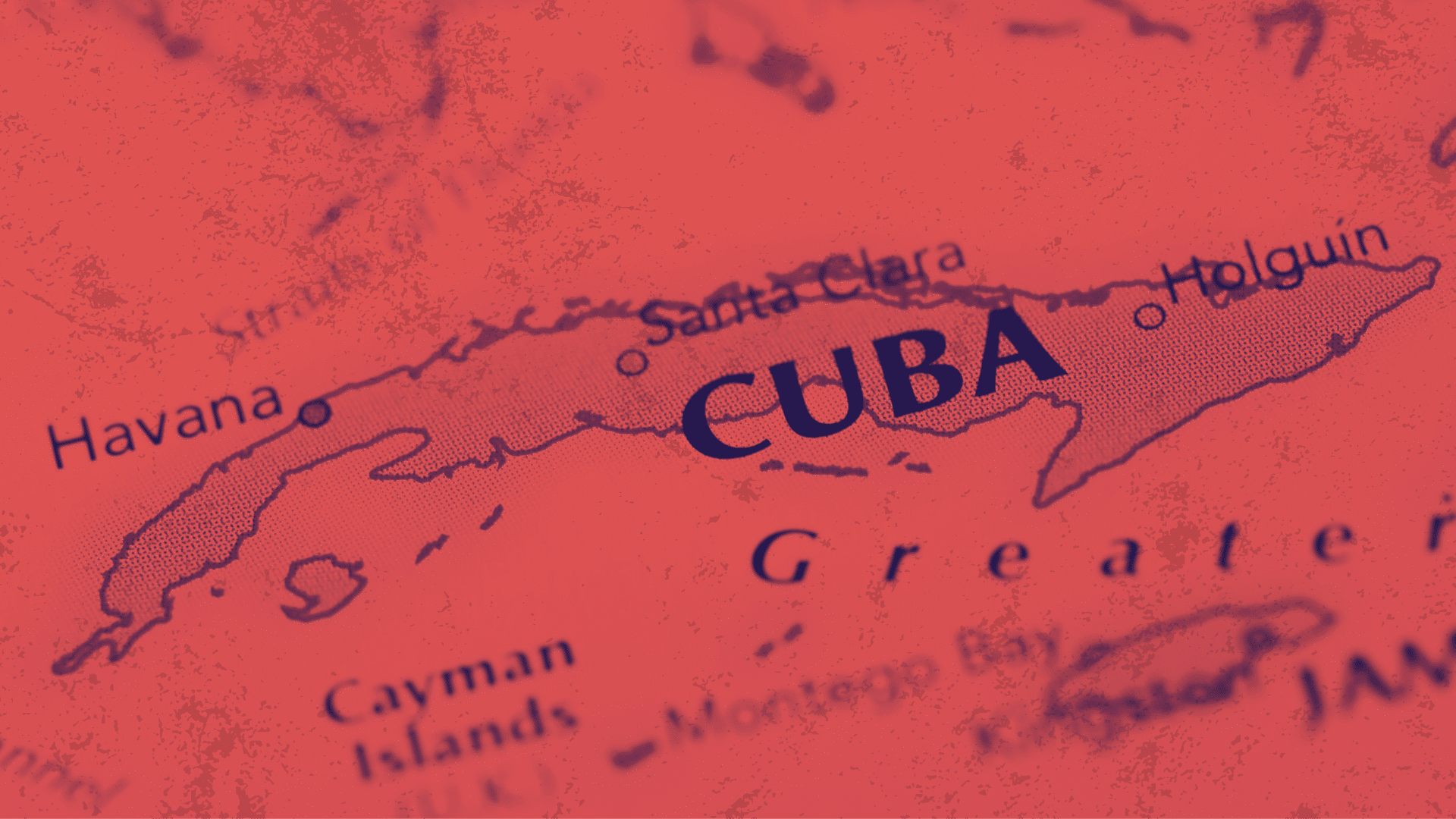It’s Not Too Late to Stand with the Cuban People

On July 11, 2021, nationwide protests across Cuba marked a before and after point in the island’s history. Hundreds of thousands of Cubans across the communist nation took to the streets, demonstrating to the international community that they wanted freedom, an end to the 64-year-old Castro dictatorship, and were willing to risk their lives to achieve it. Simultaneously, the totalitarian regime demonstrated its willingness to use violence, including lethal force, and intimidation to silence all civilians calling for nonviolent change.
It started in San Antonio de los Baños, just 16 miles from the capital city of Havana, with thousands of Cubans flocking to the streets in protest and speaking out. Images were posted on social media, and the flames of dissent spread over the island before the regime could extinguish them. Cubans marched in over 50 cities and hundreds of other localities, singing lines from the protest song Patria y Vida and demanding freedom, an end to tyranny, homeland, and life. The dictatorship was shaken by this spontaneous and nonviolent revolt.
The response delivered on the same day by Raul Castro’s hand-picked president, Miguel Diaz-Canel, is grounds for prosecution. Diaz-Canel stated explicitly, “We are calling on all the revolutionaries of the country, all the communists, to take to the streets and go to the places where these provocations are going to take place today, from now on, and in all these days and face it decisively, firmly, with courage.” He ended his speech to the nation by stating, “The order of combat has been given, revolutionaries take to the streets.”
The Cuban dictatorship blocked Facebook, WhatsApp, Instagram, and Telegram.
Regime agents beat and shot Cubans, and thousands were arbitrarily detained. On July 12, 2021, Christian Barrera Díaz went missing while participating in a nonviolent demonstration. Police said he was arrested, then drowned and was buried in a mass grave. His family believes he was murdered by police. On the same day, Diubis Laurencio Tejeda, a 36-year-old singer, was shot in the back by the dictatorship’s police after participating in the 11J protests in Havana. Other victims’ relatives were frightened into silence by the dictatorship. Despite this, photos of troops firing on unarmed protestors emerged.
Over 1,000 political prisoners remain in Cuba two years later. During that time, over 300,000 Cubans fled the island. Nonviolent protests, however, persist, as does the regime’s brutality. Witnesses to the violence who document it are also apprehended and condemned to long prison sentences. New regulations have been passed and implemented to punish people who publish content that portray the dictatorship negatively.
Atrocities persist, and regime crimes are exposed. The Cuban coast guard rammed and sank a boat carrying fleeing refugees on October 28, 2022, killing eight Cubans, including a two-year-old girl. On June 12, 2023, the IACHR concluded a decade-long investigation proving that operatives of the Cuban state were responsible for the July 22, 2012 murders of Oswaldo Payá and Harold Cepero.
While European democracies condemned the crackdown, they did little to sanction Cuba’s dictatorship. The United States imposed sanctions on individual officials but ignored Diaz-Canel, who led the violent response on July 11, 2021. Washington then lifted sanctions on Havana on May 16, 2022, one day after the regime ratified a new draconian penal code.
Failure to contain and roll back Castroism following the Soviet Union’s dissolution in 1991 resulted in more unnecessary suffering in Cuba, as well as its spread to Venezuela, Nicaragua, and elsewhere as the Cuban military and intelligence service successfully undermined democracies and assisted new autocratic regimes consolidate control.
Regime apologists are creating ahistorical arguments for another round of appeasing the Castro dictatorship in Cuba. They are silent on the fact that when communism fell in Central and Eastern Europe, it was Romania and Yugoslavia —the two communist regimes with the best relations with the West—that ended in bloodbaths directed by communist and former communist officials legitimized by Western democracies.
Following the 11J protests, the Cuban Christian Liberation Movement offered the international community an eleven-point action plan to isolate the Cuban dictatorship, but the international community failed to act, and Havana continued with its repressive policies and practices.
The international community’s failure to stand in solidarity with Cubans rather than their oppressors in the communist military junta threatens a violent conflagration. But there may still be time to do the right thing: open channels for humanitarian aid to reach Cubans on the island without passing through the regime, while isolating and ostracizing the repressive communist dictatorship and its nomenklatura, and recognizing the democratic resistance.
John Suarez is Executive Director of the Center for a Free Cuba.

